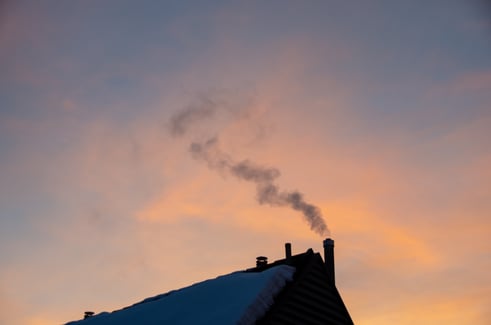 According to the National Fire Prevention Association (NFPA), heating equipment is the leading cause of fires in U.S homes. Nearly half of all home heating fires occur in December, January, and February. Luckily, there are plenty of ways to heat your home safely and efficiently. Colorado’s Office of the Utility Consumer Advocate (UCA) is offering safety tips when using furnaces, space heaters, and fireplaces to heat their homes.
According to the National Fire Prevention Association (NFPA), heating equipment is the leading cause of fires in U.S homes. Nearly half of all home heating fires occur in December, January, and February. Luckily, there are plenty of ways to heat your home safely and efficiently. Colorado’s Office of the Utility Consumer Advocate (UCA) is offering safety tips when using furnaces, space heaters, and fireplaces to heat their homes.
If you have a gas furnace, you should have your furnace professionally cleaned and inspected before each heating season. Don’t store any combustible items near your furnace, and keep the area around it clear of all debris, lint, and dust. You should also clean or replace your furnace filters every 1 to 3 months during the winter. This will reduce your energy costs and improve the efficiency of your heating system, as well as improve the air quality in your home.
When purchasing an electric space heater, you should purchase only newer model electric space heaters that have all the current safety features such as a tip over safety switch, overheat protection, and an adjustable thermostat to help save energy. Always place the heater on a level surface away from foot traffic, and be especially careful to keep children and pets away from the heater. Try to keep, at a minimum, a three-foot “kid-free zone” around all heaters. Do not use an extension cord or power strip for a space heater – you should only plug it into a wall outlet. You should never leave space heaters unattended while operating - always turn the heater off or unplug it when exiting the room, and never leave a space heater on overnight.
If you are using a wood burning fireplace, you should have your chimney swept by a professional at least once per year, before winter, to remove soot and debris to decrease the risk of a chimney fire. Always make sure the flue is open before lighting a fire to ensure proper ventilation, and never use flammable liquids to start a fire – they can produce toxic chemicals that can enter your living space. Keep metal mesh screens closed to keep embers in the fireplace and out of your living room. You should only use dry wood in the fireplace – wet wood can increase creosote build-up in the chimney, which can lead to a fire. Never leave a fireplace unattended – be sure to fully extinguish the fire before leaving the room or going to bed. When you dispose of ashes, make sure they are fully cooled and extinguished before disposing of them. Don’t place ashes directly in a plastic trash can – you can use a covered metal container placed at least 10 feet away from any building to safely dispose of ashes.
Some other tips include never using an oven or stovetop to heat your home, using carbon monoxide (CO) detectors, and testing smoke alarms and CO detectors monthly to ensure proper function. CO detectors are especially important if you use natural gas or propane to heat your home, hot water, or for cooking. Gas creates carbon monoxide if incomplete combustion occurs, and this can leak into your living space if not properly vented outside. This is another reason to have your furnace inspected regularly. It’s important to have CO monitors on every level of your home so every person can hear them and be alerted in an emergency.
We hope these recommendations will make for a safer and healthier home for you this winter. Even though homes have different ways to heat living spaces, all heating system types affect the safety of the occupants as well as indoor air quality. If you are interested in the safety and efficiency of your heating system, or would like to learn more about various energy efficient options for heating your home, visit walkingmountains.org/energy. There, you can connect with us to learn more about how your home’s safety, how it uses energy and how to make sure your air quality is safe and healthy.
Diego Betts is the Energy Programs Coordinator at Walking Mountains Science Center.






